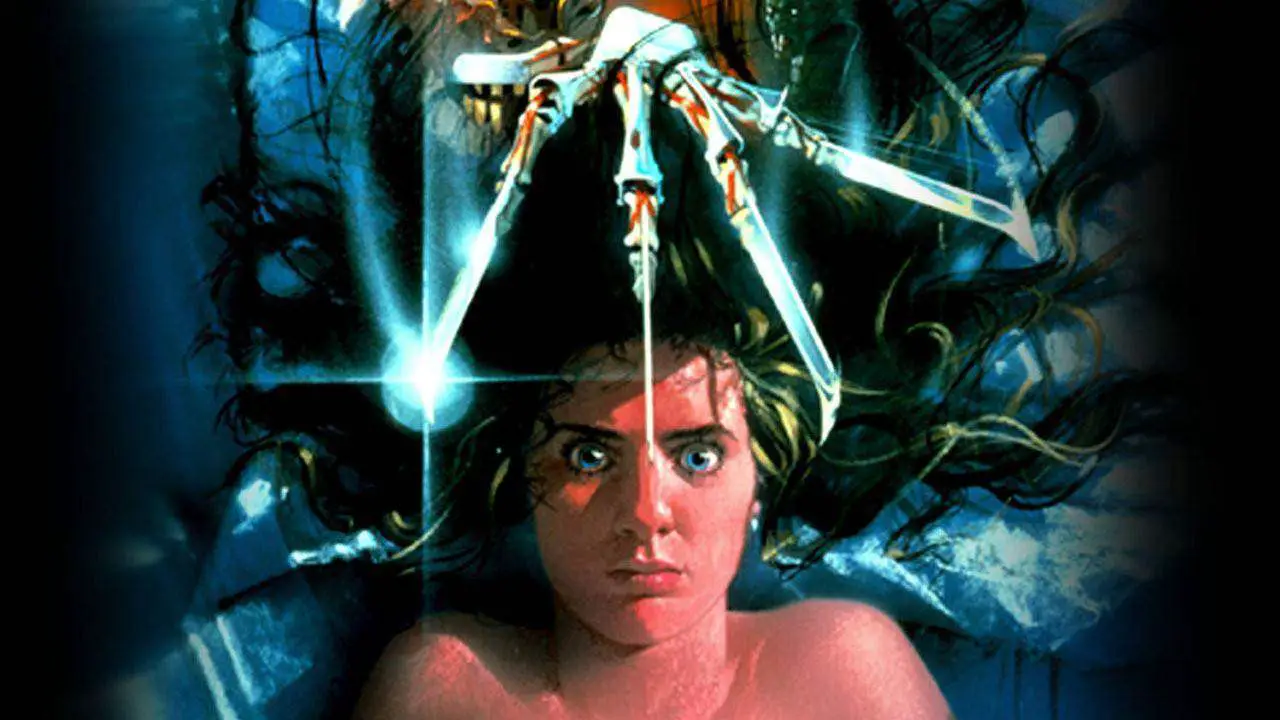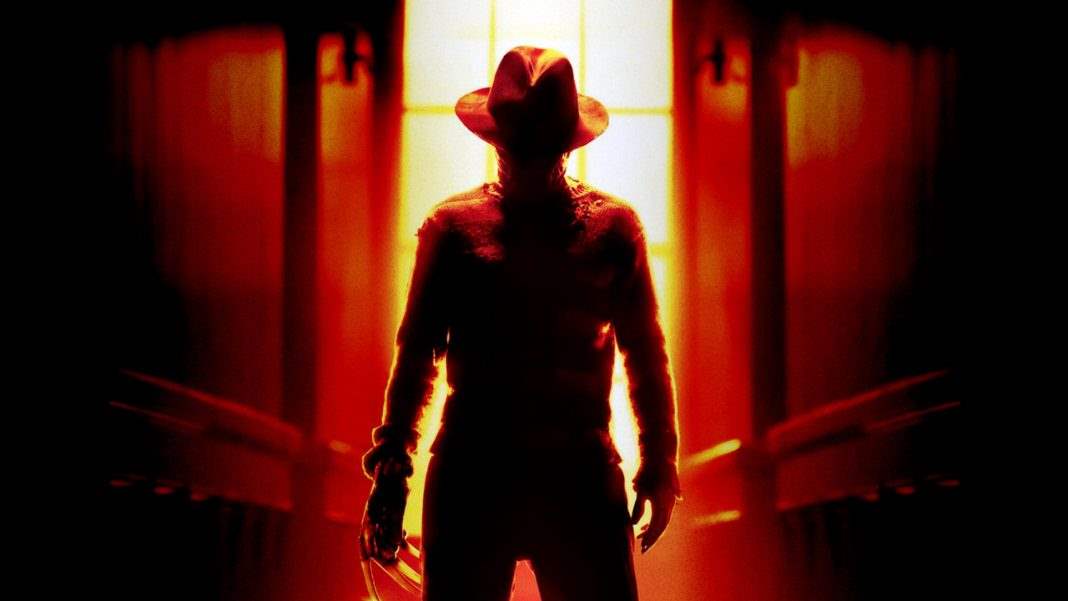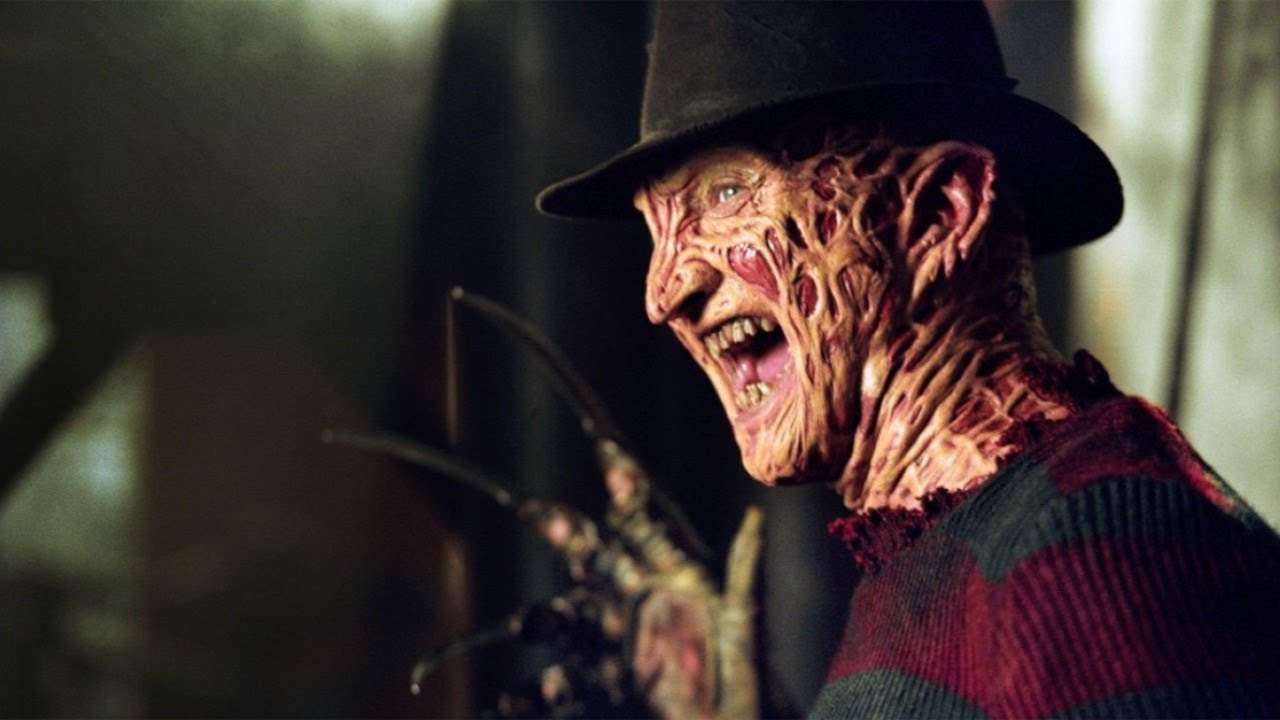Last February, the documentary Scream, Queen! My Nightmare on Elm Street was released and examined the legacy of A Nightmare on Elm Street 2: Freddy’s Revenge and the life of the film’s lead actor, Mark Patton. The film included a distinctive original score by Alexander Taylor, who paid homage to Chris Young (the sequel’s composer), while still creating a fresh sound that was fitting for a story that took place in the ’80s. Almost exactly a year later, Alexander has another horror film that was just released, Jacob Johnston’s Dreamcatcher. The flick follows two estranged sisters who, along with their friends, become entrenched in a 48-hour whirlwind of violence after a traumatic experience at an underground music festival. Because the film is centered around a music fest, Alexander’s score takes front and center, almost acting like a main character pushing the slasher conventions forward. We wanted to get more insight on how the score was created, so we spoke to Alexander exclusively. See the full exchange below.

Wicked Horror: Can you tell us about your score to Dreamcatcher?
Alexander Taylor: I’d be more than happy to! That’s what we’re here for, right? Dreamcatcher was a blast to score, and landed at the exact right time. I had just finished the scores for The Dead of Night and Hunter’s Moon. Both were very organic and natural scores.
For The Dead of Night, I really wanted the music to match the landscape. The vast emptiness a southwestern desert. Desolate and unforgiving. There was a lot of acoustic guitar, piano, and violin on that score.
For Hunter’s Moon, I wanted to make the music sound campy and semi-whimsical; like it was coming from the trees. I tracked a bunch of odd instruments on that score: kalimba, m’bira, angklung, a death whistle, a broken upright piano, harmonica, a gopichand… Greg Richling (Executive Music Producer) and I wanted to stay as organic as possible, and we made sure to have a ton of fun.
Going from those two scores to something so heavily electronic was wonderful. Synth is kind of my comfort zone, so it was nice to step back into it. Not that I didn’t have a ton of homework to do. The film takes place in the world of EDM; a genre I wasn’t too familiar with producing in. I took a crash course from my older sister Amanda, which really helped. I didn’t do the incidental tracks throughout the film. Our team was smart enough to bring in some actual artists in the genre, but I wanted to make sure to sprinkle in some elements into the score itself.
Dreamcatcher also gave me a chance to go back to my primary instrument: guitar. I always wanted to be a rock star, so this gave me a chance to at least feel like one while I was tracking alone in the studio. The guitar tone was very important in shaping the sound of the entire score, too. Really jangly, antagonizing, and haunting.
Wicked Horror: Did you give any of the characters specific themes? If so, can you talk about those.
Alexander Taylor: Oh yeah. The main jangly guitar riff is the killer’s theme. It plays at least once every time you see that mask. You can hear it the opening Bitch’s Gotta Eat cue, midway through the pill sequence when Dreamcatcher shows up, the scene where Dreamcatcher is unmasked, and all throughout the closing credits cue. I really like having an earworm that gets stuck in people’s heads when they leave theater.
There was also a specific, more somber and emotional theme for the sisters during two crucial scenes. You first hear it in A Tale Told by and Idiot. Then towards the end, I call back to it in Sound & Fury. I can’t really get into that without spoiling it, but people who have seen the movie can probably figure out why.

Wicked Horror: There is a really interesting scene when Raye is getting hunting down. When the chase begins, the music becomes highly stylized. That’s actually how a lot of the death scenes are scored. What made you decide to score these scenes this way instead of classic horror “cat and mouse” music?
Alexander Taylor: I have to speak in coded language here for people who haven’t seen the movie, but the score takes a harsh turn after a critical scene in the middle of the film. After that point, Jacob and I wanted to try something different. We wanted these scenes to sound like a “nightmare rave”, or something that would play in a club in the darkest depths of hell. Sure, it isn’t fun for the characters, but it can still be fun for the audience.
Wicked Horror: Which Dreamcatcher death scene was the scariest for you? Why?
Alexander Taylor: I kinda feel like I shouldn’t answer that question. But it involves some plastic sheeting and a crowbar.
Wicked Horror: Towards the end of the film when Ivy thinks she sees Pierce and is following her, there is a song with a woman’s soft lyrics on it. Did you collaborate with the artist on this song or did the music supervisor find it? If so, can you talk about your collaboration?
Unfortunately for me, I had nothing to do with that song. It was a licensed track from an artist named Johnny Gleeson. It’s beautiful though, and I LOVE it. I remember when I watched the final cut of the movie for the first time, and I was like, “Damn… that’s perfect.” The name is escaping me, but I’m fairly certain all of the actual EDM stuff is getting its own release separately from my score.

Wicked Horror: Can you discuss the end credit music. It sounds like there was a lot of sound design included in your score, with the graphic creating the letters. Was this all you or did you collaborate with the sound designer for this track?
Alexander Taylor: Oh, those end titles are so cool, right? I actually wrote that track before the credits were finished being created. I typically have a lot of sound design elements in my music because I love the layers and textures. You can hear it on the album; it’s the closing track titled Dreamcatcher. But our sound designer, Jeff Alan Jones, also happens to be a composer, so he was able to make his sound design work with the music. He’s fantastic.
Wicked Horror: Do you have a signature sound as a composer? If so, what is that?
Alexander Taylor: Actually, it seems to be the guitar tone I discovered while working on Dreamcatcher. It started out as an attempt to mimic Joe Perry’s tone from Dream On, but evolved from there into something very unique. I’ve used it several times sense, but not every score lets you get away with guitar.
Outside of that, I think the general experimental and textured nature of my music is what I consider a signature. It’s like, people fear what they can’t understand, right? At least, that’s a popular theory. I try to capitalize off of that by searching for new, almost unrecognizable sounds.

Wicked Horror: You also scored the documentary Scream, Queen! My Nightmare on Elm Street and had a vinyl released of your score. It’s very rare for a film to get a vinyl release, how did this come about?
That’s actually a good question. I know the owner of 1984 Publishing was one of the producers of the documentary. I don’t know which came first though; the vinyl deal or him joining the producer’s team. Regardless, his name is Matthew Chojnacki, and he is a beautiful human being. Matthew is so supportive, and a true joy to work with. That’s why I wanted to work with him again. 1984 Publishing actually released the soundtrack for Dreamcatcher, too.
No joke, seeing your work etched into vinyl is a dream come true. Especially with that amazing album art from Matt Tobin Ryan, and on hot pink vinyl. I remember when I first saw the vinyl. I was in Austin, Texas at Fantastic Fest with Mark, Roman, Tyler, Cecil, and the rest of the team. I actually teared up when I opened the first one. I had everyone sign it, and I look at it every single day. That’s not an exaggeration.
We actually had a vinyl released for Hunter’s Moon as well through Rusted Wave Records with gorgeous jacket art by Kim Rountree. Purple Vinyl. Again, it’s a dream come true.

Wicked Horror: In your opinion, what makes a horror score scary?
Alexander Taylor: You know, I’ve actually been trying to find that out myself. And I think I’ll be trying to figure it out for the rest of my life if I’m lucky.
Fortunately, my friend and manager Peter (Hackman) is very close with a lot of these legendary horror composers. Obviously, Chris Young since we are both signed with Bohemia, but tons of others too. I’m hoping to talk with a lot of them once the world gets back to normal. The wonderful thing about the composer community is that everyone is so giving and supportive when it comes to advice. At least, that’s been my experience so far.
Wicked Horror: Is there an upcoming horror film you are particularly excited to see?
Alexander Taylor: That’s a dangerous question to ask a horror fan. I absolutely cannot wait to see Nia DaCosta’s take on Candyman. The trailer alone had me sold. Plus, the cast is perfect.
I’m also a humongous fan of the Halloween franchise, and I include all timelines in that adoration. Halloween Kills is going to be a ton of fun. I love the work that John, Cody, and Daniel are doing on that score. The Shape Hunts Allyson has become instantly iconic, so it will be cool to see what they are cooking up next.
Scream is my favorite series in horror. It’s honestly the most consistent since the same key players always come back to the cast and crew. Even though Wes won’t be helming the new ship, I think Matt and Tyler are going to kick ass. They certainly have the chops; I loved Ready or Not, and their work in VHS and Southbound.
Of course, anything coming out of Blumhouse, A24, SpectreVision, and Intrepid are a must-see. They’d be fun to work with. If only some publication could advertise that I’d like to work with them.
The Dreamcatcher original score is out now on all digital sites.






